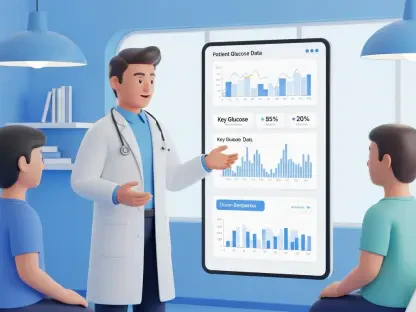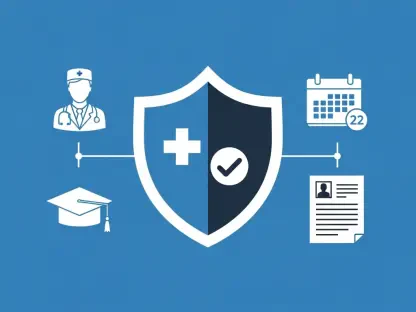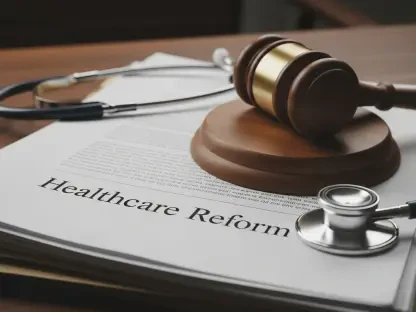Medicaid is a lifeline for many residents in rural Louisiana, especially in economically disadvantaged areas such as DeSoto Parish. Proposed cuts by the GOP-controlled Congress and President Donald Trump could disrupt healthcare services that the community heavily relies on. The potential funding reductions pose a serious threat to both the financial stability of local medical facilities and the accessibility of essential healthcare services for Medicaid recipients.
Economic Dependency on Medicaid
Medicaid as an Economic Pillar
DeSoto Regional Health System depends significantly on Medicaid for funding, serving as a crucial economic pillar for the community. CEO Todd Eppler has expressed deep concerns about the hospital’s future, fearing that without stable Medicaid support, the facility may struggle to repay loans taken out for renovations, ultimately threatening its operations. The hospital has undertaken significant upgrades to meet growing healthcare demands, relying heavily on Medicaid reimbursements to sustain its financial health.
The loss of Medicaid funding would not only affect the hospital’s ability to repay loans but also compromise its capacity to provide comprehensive healthcare services. DeSoto Regional Health System is a primary healthcare provider in the region, offering vital services ranging from emergency care to specialized treatments. The potential cuts could lead to layoffs, reduced service offerings, and even the closure of certain departments, exacerbating the healthcare access issues already prevalent in rural communities.
High Enrollment Rates
The high enrollment rates in House Speaker Mike Johnson’s district reflect the overwhelming dependence on Medicaid within rural communities. Nearly 290,000 people, accounting for 38% of the population, are enrolled in Medicaid. This high enrollment is partly due to Louisiana’s decision to expand Medicaid under the Affordable Care Act, which has significantly increased healthcare coverage for low-income individuals and families. The expansion has enabled thousands of residents to receive necessary medical care, addressing both immediate health concerns and long-term preventative measures.
However, the potential cuts threaten to undermine the progress achieved through Medicaid expansion. The increased coverage has not only improved public health outcomes but also provided financial stability for healthcare providers like DeSoto Regional Health System. Medicaid recipients, many of whom have chronic health conditions, rely on the program for consistent access to medications, treatments, and specialist consultations. Reduced funding could lead to a rollback of the expanded coverage, leaving thousands without the medical support they need. This scenario could further strain the already fragile healthcare infrastructure in rural Louisiana.
Local Economic Challenges
Prevalent Poverty
The economic challenges in the region are severe, with a poverty rate of 22%. Many residents work in low-paying jobs that do not provide health insurance, making Medicaid their only affordable option for healthcare. The economic landscape in rural Louisiana is marked by significant financial instability, with many families struggling to meet basic needs. The high poverty rate translates into a greater reliance on federal assistance programs, including Medicaid.
The proposed cuts to Medicaid would disproportionately affect low-income households, exacerbating the already dire economic conditions. Without Medicaid, many residents would face insurmountable barriers to accessing healthcare, leading to untreated medical conditions and increased health disparities. The economic ripple effects would be profound, with increased medical debt, higher rates of absenteeism due to untreated illnesses, and a greater dependence on emergency services as preventative care becomes inaccessible.
Struggles of Working-Class Individuals
Personal stories like those of Chloe Stovall, a grocery store worker, and Doris Luccous, a housekeeper, highlight how crucial Medicaid is for those who cannot afford healthcare through their employers or out-of-pocket. Both individuals represent a significant portion of the working-class population that relies on Medicaid for medical support. Chloe Stovall, for instance, works long hours but earns a modest wage that makes it impossible to afford private health insurance. Without Medicaid, Chloe would be unable to access regular check-ups, vital medications, or emergency care.
Similarly, Doris Luccous depends on Medicaid not just for routine medical treatments but also for mental health services and medications crucial to her well-being. The financial constraints faced by individuals like Chloe and Doris are a common reality in rural Louisiana, where low-paying jobs are prevalent and healthcare costs are often prohibitively high. The potential cuts to Medicaid would strip away the safety net that allows these working-class individuals to manage their health and continue contributing to the local economy. Their stories underscore the essential role that Medicaid plays in maintaining the health of the workforce, which in turn supports the economic stability of the region.
The Political Landscape
Speaker Mike Johnson’s Role
House Speaker Mike Johnson has been a driving force behind the budget resolution aimed at cutting Medicaid funding. Despite his assurances that the program will continue to support those in need, there is a palpable fear among his constituents regarding the potential fallout. Johnson’s efforts to push for significant funding reductions are rooted in a broader political agenda focused on fiscal conservatism and reducing federal expenditures.
However, the proposed budget cuts fail to consider the real-world implications for the thousands of Medicaid recipients in Johnson’s district. The disconnect between political promises and the lived experiences of constituents has resulted in widespread anxiety and uncertainty. For many, Medicaid is not a mere government program but a lifeline that ensures access to essential health services. Johnson’s constituents, who are already facing economic hardships, see the proposed cuts as a direct threat to their health and financial stability.
Discrepancies in Priorities
There is a stark contrast between the political agenda focused on reducing “fraud, waste, and abuse” in Medicaid and the actual needs of Medicaid recipients, who are hardworking citizens struggling to make ends meet. The rhetoric surrounding the proposed cuts often emphasizes the need to streamline government spending and eliminate inefficiencies. However, this narrative overlooks the critical support that Medicaid provides to low-income families and individuals.
The majority of Medicaid recipients are not engaging in fraudulent activities but are instead reliant on the program for their well-being. Reducing funding based on broad claims of “fraud and abuse” risks penalizing those who genuinely need assistance. The political priorities are misaligned with the realities on the ground, where Medicaid serves as a necessary support for healthcare access amid economic constraints. This discrepancy highlights the complexities of policy-making that directly impacts vulnerable populations, emphasizing the need for a nuanced approach that addresses actual needs rather than political objectives.
Real-World Implications
Health Services at Risk
The potential Medicaid cuts could lead to reduced services or the closure of rural hospitals and clinics, exacerbating the already tenuous healthcare access in these communities. Rural health systems, which are typically under-resourced, rely heavily on Medicaid funding to operate efficiently. The financial health of these facilities is intricately linked to Medicaid reimbursements, which support various aspects of healthcare delivery, from primary care to specialized treatments.
Cuts to Medicaid threaten to destabilize the fragile healthcare infrastructure in rural Louisiana, leading to significant service reductions or outright closures. For communities already grappling with limited healthcare options, this would be catastrophic. The loss of local health services would force residents to travel long distances for medical care, resulting in delayed treatments and increased health complications. Additionally, the financial instability of healthcare providers could lead to layoffs, further reducing the region’s capacity to address healthcare needs. The potential cuts pose a grave threat to the health and well-being of rural Louisiana residents, who depend on Medicaid-supported facilities for their medical care.
Personal Stories Highlight the Stakes
Individuals like Benjamin Andrade and Dominique Youngblood, whose health and well-being depend on Medicaid for critical treatments and medications, illustrate the life-altering impact that cuts to the program could have. Benjamin Andrade, a chef, relies on Medicaid for affordable medications following heart surgery. Without Medicaid, Benjamin would face exorbitant costs that he cannot afford, jeopardizing his recovery and long-term health.
Dominique Youngblood, a daycare worker, also depends on Medicaid for regular and emergency healthcare costs. The affordability and accessibility of healthcare through Medicaid have enabled Dominique to manage her health while maintaining her employment. The proposed cuts place individuals like Benjamin and Dominique in precarious situations, raising their risk of health deterioration due to lack of medical support. Their stories are not unique but represent a broader trend among Medicaid recipients who face substantial barriers to healthcare access without the program’s assistance. The stakes are incredibly high for these individuals, emphasizing the critical role that Medicaid plays in their lives.
Community Voices
The article amplifies the voices of those directly affected, showing a unified concern regarding the proposed cuts. The stories of Medicaid recipients and healthcare providers alike highlight the essential support that Medicaid provides to the most vulnerable populations in rural Louisiana. The common thread in these narratives is the reliance on Medicaid for basic healthcare needs and the fear of losing this crucial support system.
Community voices underscore the deep-rooted anxiety about the potential healthcare disruption that Medicaid cuts could bring. They reflect a shared sentiment that the proposed funding reductions would have dire consequences, not just for individual healthcare access but for the overall health and economic stability of the community. The chorus of concerns from various stakeholders—from patients to medical professionals—provides a compelling case against the proposed cuts, illustrating the tangible risks involved. These voices serve as a powerful testament to the integral role of Medicaid in supporting rural Louisiana’s healthcare infrastructure.
Conclusion
Medicaid is crucial for many residents in rural Louisiana, particularly in economically disadvantaged areas like DeSoto Parish. This government healthcare program provides essential services that these communities depend on for their well-being. However, proposed cuts by the GOP-controlled Congress and President Donald Trump could significantly disrupt these vital healthcare services. The potential funding reductions threaten not only the financial stability of local medical facilities but also the accessibility of essential healthcare services for Medicaid recipients.
If these cuts were to take effect, healthcare providers in these rural areas might face severe financial strain, leading to reduced services or even closures of medical facilities. This would disproportionately affect the economically disadvantaged residents, who may have no other means to access necessary medical care. The ripple effects of such funding cuts could lead to worsening public health outcomes, higher medical costs in the long run due to untreated conditions, and an increased burden on remaining healthcare providers.
In summary, Medicaid is a lifeline for many in rural Louisiana. Proposed funding cuts pose a serious risk to the community’s healthcare infrastructure and the well-being of its residents. Maintaining Medicaid funding is essential to ensure the accessibility and stability of healthcare services for those who need them most in areas like DeSoto Parish.









